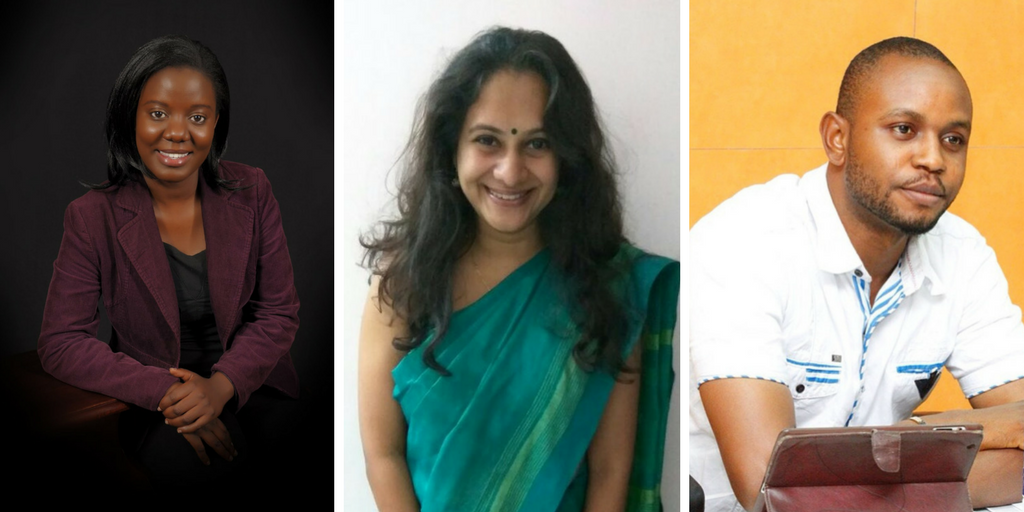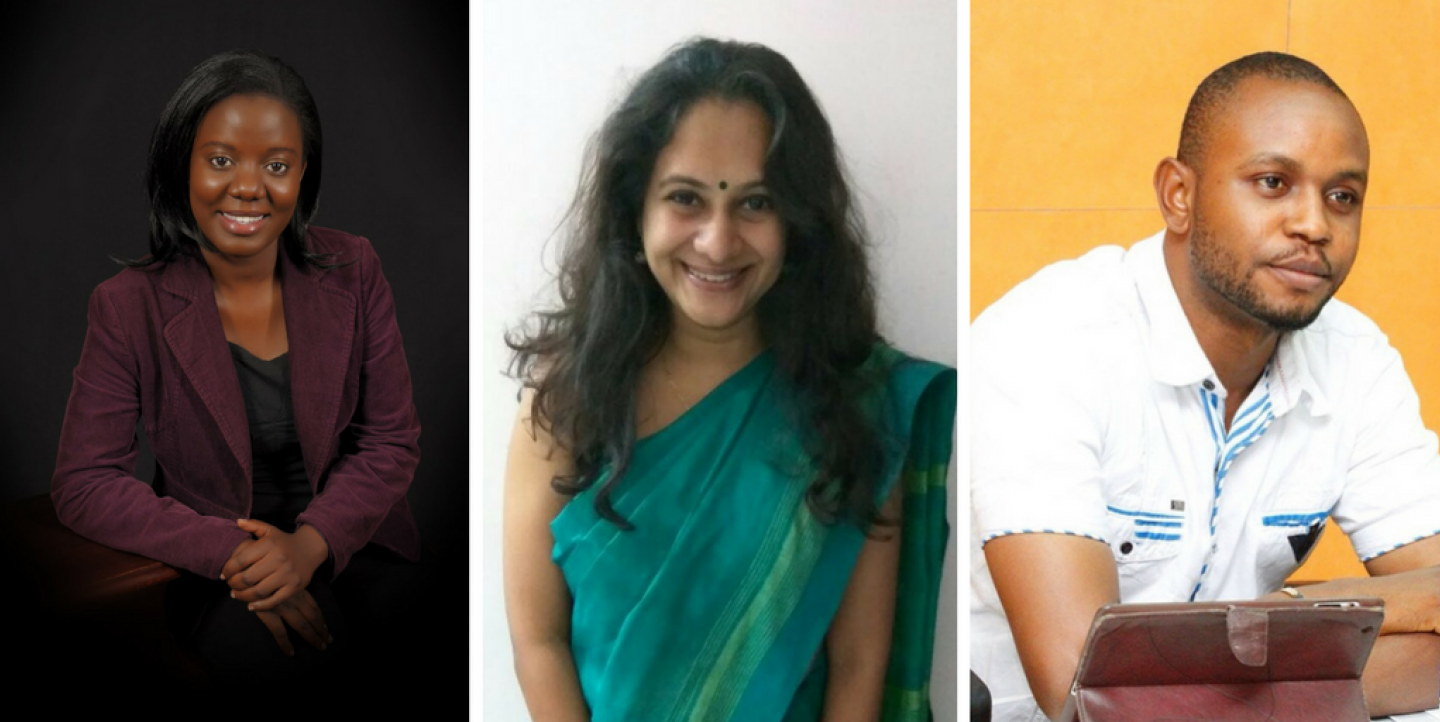 From left to right: Sharon Barang’a, Priyanka Vora and Martins Ifijeh.
From left to right: Sharon Barang’a, Priyanka Vora and Martins Ifijeh.
The International Center for Journalists, in partnership with the Children’s Investment Fund Foundation (CIFF), recently selected three winners for the 2016 Early Childhood Development Reporting Contest. Martins Ifijeh, a health reporter for ThisDay Newspaper in Nigeria, won for best reporting; Priyanka Vora, a health writer for Scroll.in in India, won for best use of data; and Sharon Barang’a, a reporter for Nation Media Group’s NTV in Kenya, won for best visuals.
Their stories examined child development during the earliest years of life, particularly a child’s first 1,000 days, in their respective countries. Each of their storise demonstrates how impactful proper child care — or lack thereof — can be to the rest of a child’s life. And each story seeks to effect change by informing the public.
Ifijeh, Vora and Barang’a shared their experiences, challenges faced and advice in covering early childhood development in a recent ICFJ webinar. Here are our top takeaways from their discussion:
Getting around bureaucracy
While collecting data for her first winning story, which focused on the connection between childhood malnutrition and disease in one of India’s poorest states, Vora found it was difficult to access public health data. She decided to go into the field herself to gather data firsthand rather than rely on secondary data.
“At that point in time, [the local government was] in trouble because many children were dying; every day there were two to three deaths happening at the hospital,” she explained. “Instead of focusing on numbers and looking at websites, I decided to go and visit the field and get the [information] from there. There was a story that they weren’t doing enough.”
Because of the disparity in data on public health issues from different sources, from the local level to the state level, Vora said it’s important for journalists to go into the field, collect the data and analyze it yourself – and not to rely on other’s analysis.
Developing an effective story
Ifijeh came up with the idea for his winning story after learning that 11 million Nigerian children suffer from malnourishment. This led him to seek out the broader socioeconomic impacts of malnutrition in his country, scouring through publically available data and looking at individual cases of malnutrition.
“If 11 million Nigerian children are suffering from malnutrition, there’s definitely no way Nigeria will be a developed country, due to the fact that the nutritional status of children below five years also has impacts on how the economy of the society will be,” he said. “Generally, if children are suffering from a chronic form of malnutrition which stunts development, it definitely has an impact on the mental and psychological development.”
Since it was published, Ifijeh’s reporting and data collection have shown that the number of children affected by various health issues is much higher than government data suggests.
“You cannot have an effective intervention if you don’t know the scale of the problem,” he said.
But the story also looks at what can be achieved through early intervention, focusing on a mother whose malnourished 14-month-old daughter couldn’t sit or stand and was the size of a three-month-old. The story ultimately shows how early intervention with a special diet helped the child avoid developmental problems.
Bringing attention to overlooked issues
While working on their stories, all three journalists found that problems with early childhood care tended to be overlooked by government officials.
While governments release data on childhood development, they’re more likely to downplay negative figures than international organizations like UNICEF, explained Barang’a. One of her winning stories examines the role naps play in helping preschoolers learn and retain information. Additionally, it may be difficult to find official sources to comment on a story if the story doesn’t reflect positively on the government.
“Don’t get discouraged if a government official refuses to comment on your story,” Barang’a said. “Report on it anyways. Let the public decide how to view it. Let the public know the issues and that you tried to approach an official who gave no comment so they can react and agitate for change.”
For the next phase of the Early Childhood Development Program, ICFJ and CIFF will select 10 reporting fellows from Bangladesh, Brazil, India, Kenya, Nigeria and Tanzania. Fellows will receive training, mentoring and financial support to produce stories on nutrition and early childhood development. IJNet will publish an opportunity post for the fellowship when applications are open.

